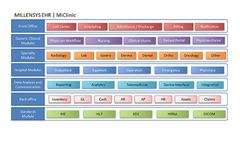- Home
- Software
- australasia
- examination procedure
Refine by
Examination Procedure Software Available In Australasia
2 software items found
Manufactured by:Clarius Mobile Health Corp based inVancouver, BRITISH COLUMBIA (CANADA)
The Advanced Breast Package offers more flexibility for users that need additional customizations for breast examinations and ...
by:MILLENSYS based inCairo, EGYPT
The unified Information Management platform for a total management of hospitals and healthcare ...


